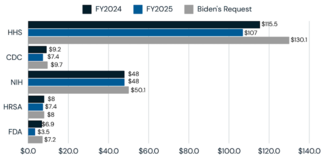High-Efficacy Multiple Sclerosis Therapies Linked to Fewer Emergency Department Visits and Lower Risk
High-efficacy disease-modifying therapies (DMTs) for multiple sclerosis (MS) are linked to a reduced likelihood of emergency department (ED) visits, according to a study published in Neurology.
Researchers at Massachusetts General Hospital reviewed medical records from June 2019 to December 2023, comparing 300 adults with MS who visited the ED to 600 matched controls who did not. All participants met 2017 McDonald diagnostic criteria for MS. They examined sociodemographic data, comorbidity burden, insurance coverage, and DMT use, with therapies categorized as low-, medium-, or high-efficacy. The primary goal was to identify predictors of ED utilization in the era of modern MS treatments.
Among ED users, most were women (70.7%), White (79.0%), and averaged 52 years of age. A striking 64.3% were not on any DMT, while 23.3% received high-efficacy therapy. These patients carried a heavier comorbidity burden, with a mean Charlson Comorbidity Index (CCI) score of 0.83 versus 0.05 in controls. Public insurance coverage was more common in the ED group (42.7% vs 25.7%).
During the study period, 731 ED visits were recorded among cases, with COVID-19 leading as the most common diagnosis (4.4%), followed by hypertension and mental health conditions (each 4.0%). Only 2 visits were for MS relapses. Over a quarter of ED users were high-frequency visitors, with 5 or more visits.
Logistic regression analyses showed that higher CCI scores were the strongest predictor of ED visits (OR up to 4.23, P <.001). No DMT use was also significantly associated with increased ED likelihood (OR = 2.56, P <.001). Conversely, all levels of DMT reduced ED visit odds compared with no DMT, with high-efficacy therapy showing the greatest protective association (OR = 0.44, P <.001).
“Addressing comorbidities, disparities in health care access, and the needs of patients not receiving DMTs are each essential for optimizing care for people with MS,” concluded the study authors.
Reference
Satish S, Patel A, Mastick ML, et al. Multiple sclerosis in the emergency department: A retrospective case-control study in a large US center. Neurol Neuroimmunol Neuroinflamm. 2025;12(5):e200445. doi:10.1212/NXI.0000000000200445














